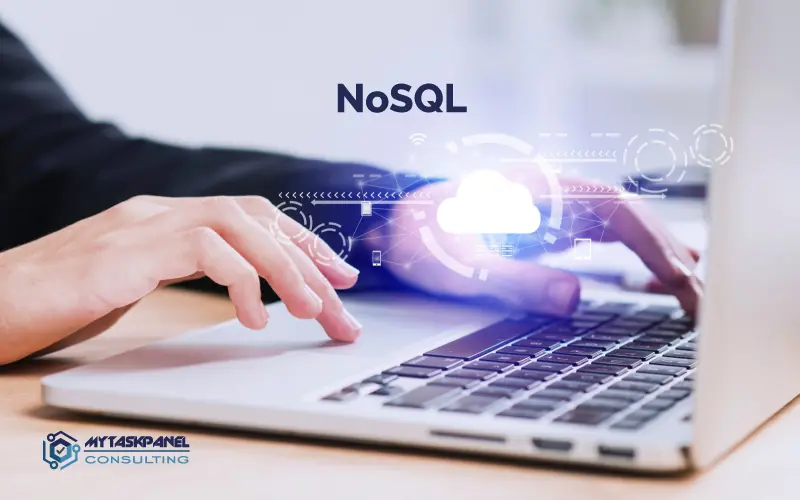NoSQL databases have emerged as an innovative response to the challenges posed by managing large volumes of data in modern business environments. In this article, we will delve into what these databases are, their different types, and uses. Additionally, we will discuss the benefits they offer to companies seeking to optimize data management in the digital age.
What are NoSQL databases?
NoSQL databases, or “Not Only SQL,” are database management systems that provide a different approach to data storage and retrieval compared to traditional relational databases. Unlike the rigid tabular structures of SQL databases, NoSQL allows considerable flexibility in handling unstructured or semi-structured data.
Types
1. Document-oriented
This type of database stores data in documents, typically in formats like JSON or BSON. MongoDB is a prominent example, used to manage large amounts of unstructured data.
2. Key-value
Key-value databases store data in key-value pairs, where each key is associated with a single value. Redis and DynamoDB are well-known examples of this type, ideal for applications requiring fast data retrieval.
3. Columnar
Columnar databases store data in columns rather than rows, facilitating efficient search and retrieval of specific information. Cassandra is a notable example, particularly useful in Big Data environments.
4. Graph-oriented
These databases represent data as interconnected nodes in a graph, perfect for modeling complex relationships. Neo4j is a leading example, employed in scenarios where data relationships are critical.
Uses
1. Web and mobile applications
NoSQL databases are ideal for web and mobile applications that handle large volumes of unstructured data. Their ability to scale horizontally and manage real-time data makes them a preferred choice for these dynamic applications.
2. Big Data
In Big Data environments, where massive data sets are processed and analyzed, these databases, especially columnar and graph-oriented ones, are essential tools. They facilitate efficient data management and retrieval under these conditions.
3. IoT (Internet of Things)
The growth of the Internet of Things has increased the complexity of data management. NoSQL databases are crucial for handling the constant flow of data generated by connected devices, allowing efficient storage and retrieval.
4. Content Management Systems (CMS)
For websites and platforms that manage large amounts of multimedia content and unstructured data, NoSQL databases provide the necessary flexibility to adapt to the variable nature of this content.
Benefits
1. Horizontal scalability
NoSQL databases are designed to scale horizontally, meaning they can handle an increase in data volume by adding more servers to the system. This allows companies to expand their capacity without sacrificing performance.
2. Schema flexibility
Unlike relational databases that require a predefined schema, NoSQL databases are flexible regarding the types of data they can store. This is particularly advantageous when handling unstructured or semi-structured data.
3. Improved performance
For certain types of applications, such as those requiring high-speed read and write operations, NoSQL databases offer better performance compared to traditional relational databases.
4. Efficient handling of large data volumes
In environments where large volumes of data are managed, such as Big Data, NoSQL databases provide more efficient and faster management of massive data sets.
NoSQL databases, with their flexible and scalable approach, have proven to be essential tools for companies looking to adapt to the changing demands of the digital world. By understanding the different types and their applications, as well as leveraging their benefits, companies can move towards more effective and future-ready data management. Smart adoption of these technologies can make the difference between merely storing data and harnessing its potential for business growth and innovation.










